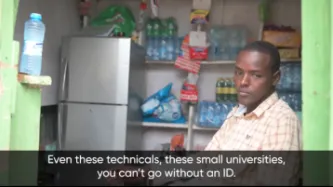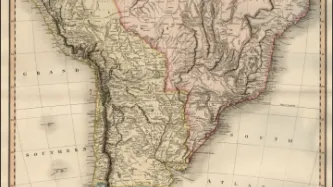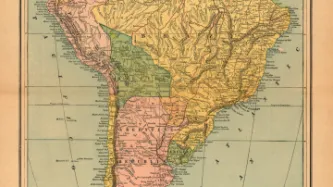Search
Content type: Long Read
In 2024, Privacy International (PI) continued to produce real change by challenging governments and corporations that use data and technology to exploit us.Since the beginning of the year, we’ve achieved some wins and would like to share the most recent ones with you.Creating change is hard, and takes time. We have to uncover problems, draw attention to them, and pressure for change. In the latest quarter, we've been able to push regulators for stronger standards on generative AI systems, draw…
Content type: Long Read
What happened?On 19 July 2024, American cybersecurity company CrowdStrike released an update to its CrowdStrike Falcon software that ultimately caused 8.5 million computers running Microsoft Windows to crash. The damage done was both deep and wide: deep because the computers affected were unable to recover without direct user intervention. Wide because a whole range of companies - from airlines to healthcare to media - across a whole range of countries - from Sweden to India to New Zealand -…
Content type: Video
In Kenya, if you don’t have an ID, life can be extremely difficult. But for thousands of people across the country, getting an ID can be nigh on impossible. Some Kenyan citizens can’t obtain a national ID because they are registered in the Kenyan refugee database. Often referred to as victims of double registration, their predicaments reveal a deeper problem with ID itself.Now Haki na Sheria - a Kenyan organisation advocating for and supporting the victims of double registration - and three…
Content type: Long Read
This article was written by Sameet Panda and Vipul Kumar.
Over the last couple of years, there has been a push towards digitising the PDS, which includes linkage with the Aadhaar (India’s biometric identification system) and maintenance of digital records at Fair Price Shops that distribute the ration, among other initiatives. Without taking into account the availability of appropriate digital infrastructure and access among beneficiaries, these initiatives have been unable to solve…
Content type: Examples
Immunity passports would impose artificial restrictions on who can and cannot participate in social, civic, and economic activities, and create a perverse incentive for individuals, particularly those who can’t afford a period of exclusion, to seek out infection, posing a health risk to anyone they come into contact with. Both governments and individuals may be under pressure to return employees to the workforce, and immunity passports may lead governments to believe they have a quick fix that…
Content type: Case Study
In 2030 Amtis finds a future where property rights for data were adopted. Here’s how this future plays out:
My data, my turf. This was the first graffiti I saw as I was walking down the street and I said to myself, “Yeah, big corp, we’re going to get you good!”. I am fed up with companies making insane amounts of money from my data. If this is the game we’re playing, I want my fair share.
I was not the only one thinking like this. A few years back there was a strong push towards adopting…
Content type: Examples
Reports that Amazon is planning on launching a free ad-supported music service caused Spotify’s (the Swedish audio streaming platform) shares to fall 4% on Monday, April 15th. And, on April 18th, Amazon published a blog post where it announced that launch of Amazon’s free music-streaming service in the US. The ad-supported free service became available exclusively through Alexa, Amazon’s voice assistant programmed into Echo devices. It has been reported thatthe Alexa only launch…
Content type: Examples
In June 2018, a panel set up to examine the partnerships between Alphabet's DeepMind and the UK's NHS express concern that the revenue-less AI subsidiary would eventually have to prove its value to its parent. Panel chair Julian Huppert said DeepMind should commit to a business model, either non-profit or reasonable profit, and noted the risk that otherwise Alphabet would push the company to use its access to data to drive monopolistic profits. In that case, DeepMind would either have to…
Content type: Examples
Even after 2015, when Facebook said it had walled off user records from third parties, inside sources and court documents showed that the company went on maintaining a whitelist of companies that were allowed customised access to information about users' Friends, phone numbers, and a "friend link" metric that measured the degrees of separation. Whitelisted companies included Nissan and Royal Bank of Canada, and others that either advertised on the network or were valuable to Facebook for other…
Content type: Examples
In May 2018, the ACLU of Northern California obtained documents under a FOIA request showing that Amazon was essentially giving away its two-year-old Rekognition facial recognition tools to law enforcement agencies in Oregon and Orlando, Florida. Amazon defended the move by saying the technology has many useful purposes, including finding abducted children and identify attendees at the 2018 wedding of Britain's Prince Harry and Meghan Markle. The company markets Rekognition as useful for…
Content type: Examples
In August 2018, two lawsuits, were filed against NSO Group, one brought in Israel by a Qatari citizen and the other in Cyprus by Mexican journalists and activists. All the plaintiffs had been targeted by the company's Pegasus spyware, which takes control of targets' phones when they click on links sent via carefully crafted phishing messages. The company claims that it sells the technology to governments on condition that they use it exclusively against criminals and it is not responsible for…
Content type: Examples
In August 2018, Facebook announced it would remove more than 5,000 ad targeting options in order to prevent discrimination. Options specifying the exclusion of people interested in "Passover", "Native American culture", or "Islam" could be used as proxies to allow advertisers to exclude ethnic and religious groups in contravention of the law. The announcement came shortly after the US Department of Housing and Urban Development filed a complaint alleging that the company had enabled…
Content type: Case Study
The exclusion caused by ID can have a devastating effect on people, limiting their opportunities and ability to survive.
Names have been changed.
Carolina is in a more privileged position than many other migrants, she admits that. She has a formal job, for one. She is – and has always been – in Chile legally: her previous visa has expired, and her new one is being processed. Under the law, she is permitted to stay and work in the country while this is happening. But she is finding the…
Content type: Case Study
Photo credit: Douglas Fernandes
The exclusion caused by ID can have a devastating effect on people, limiting their opportunities and ability to survive. In September 2018, Privacy International interviewed people in Santiago, Chile who had faced problems from the Chilean ID system, known as the RUT. Names have been changed.
It was never going to be easy for Liliana, entering Chile without a visa. But, in Chile, the ID system – known as the RUT – is ubiquitous; without one, as she would…
Content type: Case Study
Cities around the world are deploying collecting increasing amounts of data and the public is not part of deciding if and how such systems are deployed.
Smart cities represent a market expected to reach almost $760 billion dollars by 2020. All over the world, deals are signed between local governments and private companies, often behind closed doors. The public has been left out of this debate while the current reality of smart cities redefines people’s right to privacy and creates new…
Content type: Case Study
Financial services are collecting and exploiting increasing amounts of data about our behaviour, interests, networks, and personalities to make financial judgements about us, like our creditworthiness.
Increasingly, financial services such as insurers, lenders, banks, and financial mobile app startups, are collecting and exploiting a broad breadth of data to make decisions about people. This is particularly affecting the poorest and most excluded in societies.
For example, the decisions…














